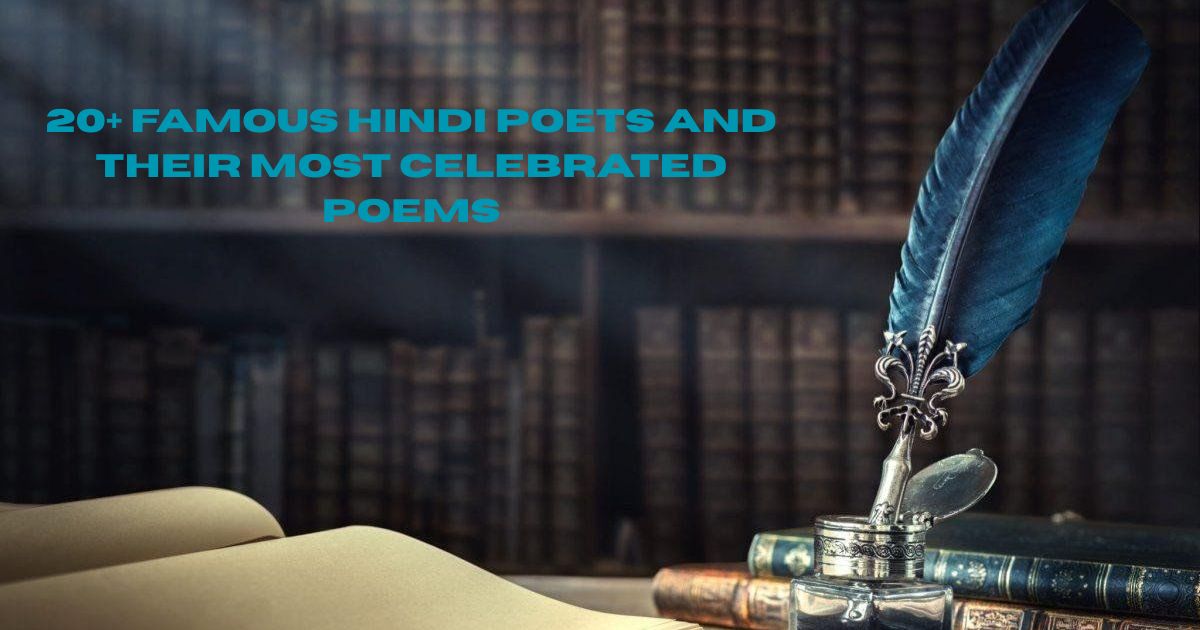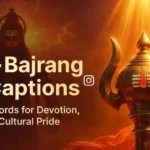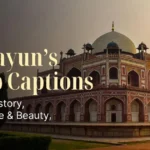Hindi literature has been enriched by countless famous Hindi poets whose verses continue to resonate across generations, capturing the essence of human emotions, spirituality, and social consciousness. These literary giants have crafted poems in Hindi that serve as windows into India’s cultural soul, offering profound insights into love, devotion, patriotism, and philosophical wisdom. From the mystical couplets of medieval saints to the revolutionary verses of modern writers, each famous Hindi poet has contributed unique flavors to this magnificent literary tradition.
Kabir Das
Kabir Das, the 15th-century mystic poet and social reformer, stands as one of the most influential famous Hindi poets in Indian literature. His philosophy transcended religious boundaries, advocating for unity among all faiths while criticizing social inequalities and orthodox practices. Through his simple yet profound dohas (couplets), Kabir conveyed complex spiritual truths that continue to guide seekers of truth.
अरे इन दोहुन राह न पाई (Are In Dohun Raah Na Paai)
अरे इन दोहुन राह न पाई।
ना हिंदू ना मुसलमान।
खुदा राम के पिंड परे,
सब विधि एक समान।।
This powerful composition by Kabir reflects his revolutionary thinking about religious harmony and universal brotherhood. The poem in Hindi emphasizes that neither the Hindu nor Muslim path alone leads to ultimate truth, as both Allah and Ram represent the same divine essence. Kabir’s verses challenged the rigid religious divisions of his time, promoting a message of spiritual unity that remains relevant today.
Tulsidas
Tulsidas, the 16th-century saint-poet, is revered as one of the greatest famous Hindi poets for his monumental work “Ramcharitmanas.” His devotional poetry transformed the landscape of Hindi literature, making the Ramayana accessible to common people through beautiful vernacular verses. Tulsidas’s profound devotion to Lord Rama permeates every line of his compositions, establishing him as the supreme poet of bhakti literature.
हनुमान चालीसा से (From Hanuman Chalisa)
श्रीगुरु चरन सरोज रज निज मनु मुकुरु सुधारि।
बरनउँ रघुवर बिमल जसु जो दायकु फल चारि।।
बुद्धिहीन तनु जानिके सुमिरौं पवन कुमार।
बल बुद्धि बिद्या देहु मोहि हरहु कलेस बिकार।।
This opening verse from the Hanuman Chalisa showcases Tulsidas’s mastery in creating devotional poems in Hindi that combine spiritual depth with melodious rhythm. The composition expresses humility before the divine while seeking blessings for wisdom and strength, reflecting the poet’s complete surrender to higher powers. These lines have become a source of comfort and inspiration for millions of devotees worldwide.
Surdas
Surdas, the blind poet of the 16th century, earned recognition as one of the most beloved famous Hindi poets through his enchanting verses about Lord Krishna’s childhood. His compositions in the Sursagar capture the playful essence of young Krishna with such vivid imagery that readers can almost visualize the scenes. Despite his physical blindness, Surdas possessed extraordinary spiritual vision that illuminated his poems in Hindi with divine love.
मैया मोरी मैं नहीं माखन खायो (Maiya Mori Main Nahin Makhan Khayo)
मैया मोरी मैं नहीं माखन खायो।
ख्याल परे ये सखा सबन मिलि मेरे मुख लपटायो।।
देखि तुही छींके पर भई अरु चिकनी मटकी।
ये सब बानि बनाइ कै हमकौं दै दै खोटी पटकी।।
This delightful poem in Hindi by Surdas portrays young Krishna’s innocent denial when accused of stealing butter by his mother Yashoda. The verses capture the charming mischief and childlike innocence that make Krishna so endearing to devotees. Surdas masterfully combines humor with devotion, creating scenes that have entertained and spiritually nourished readers for centuries.
Bihari
Bihari Lal, the 17th-century court poet, distinguished himself among famous Hindi poets through his concise yet profound dohas that packed immense meaning into just two lines. His masterpiece “Bihari Satsai” contains seven hundred couplets covering themes of love, beauty, devotion, and wisdom. Known for his wit and wordplay, Bihari demonstrated that brevity could be more powerful than lengthy compositions.
कहत नटत रीझत खिझत मिलत खिलत लजियात (Kahat Natat Reejhat Khijhat Milat Khilat Lajiyat)
कहत नटत रीझत खिझत मिलत खिलत लजियात।
भरे भौन में करत है नैननि ही सब बात।।
या अनुरागी चित्त की गति समुझै नहिं कोय।
ज्यौं ज्यौं बूड़ै श्याम रंग त्यौं त्यौं उज्ज्वल होय।।
This exquisite doha by Bihari captures the complex language of eyes in romantic expression, demonstrating how lovers communicate through glances alone. The poem in Hindi showcases the poet’s ability to compress profound observations about human nature into perfectly crafted verses. Bihari’s mastery lies in his capacity to evoke entire emotional landscapes through minimal yet impactful words.
More Posts:28+ Famous Hindi Poems by Rabindranath Tagore
Rahim
Abdul Rahim Khan-e-Khana, known simply as Rahim, stands unique among famous Hindi poets as a Muslim courtier who composed beautiful dohas in Hindi. His verses reflect a deep understanding of human psychology, social relationships, and moral values. Rahim’s poems in Hindi demonstrate that great poetry transcends religious and cultural boundaries, speaking directly to the universal human experience.
रहिमन देखि बड़ेन को लघु न दीजिये डारि (Rahiman Dekhi Baren Ko Laghu Na Deejiye Daari)
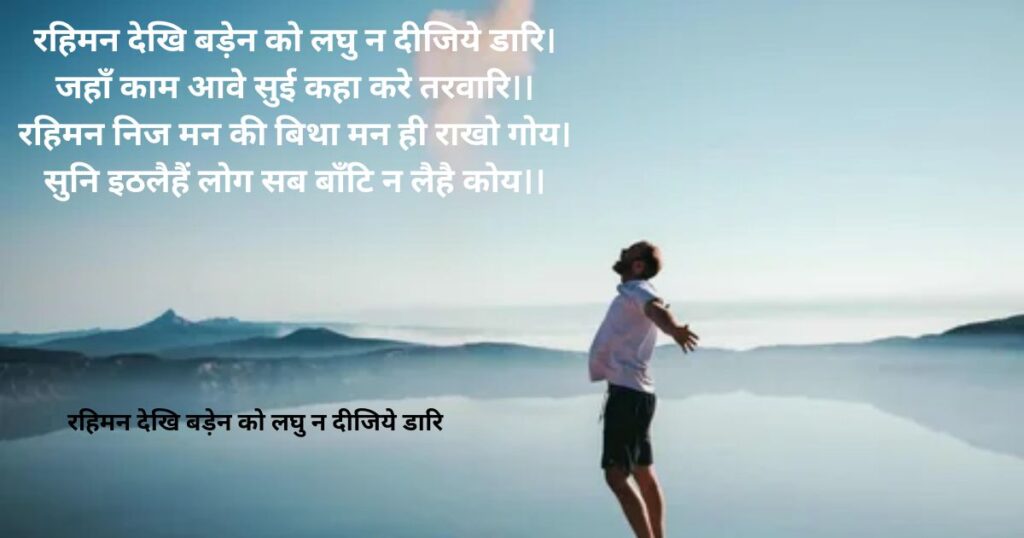
रहिमन देखि बड़ेन को लघु न दीजिये डारि।
जहाँ काम आवे सुई कहा करे तरवारि।।
रहिमन निज मन की बिथा मन ही राखो गोय।
सुनि इठलैहैं लोग सब बाँटि न लैहै कोय।।
This wise doha by Rahim teaches valuable life lessons about not underestimating smaller things in favor of larger ones, using the metaphor of a needle versus a sword. The poem in Hindi reflects the poet’s practical wisdom and deep understanding of human nature and social dynamics. Rahim’s verses continue to guide readers toward more thoughtful and balanced approaches to life’s challenges.
Bharatendu Harishchandra
Bharatendu Harishchandra, hailed as the father of modern Hindi literature, revolutionized Hindi poetry in the 19th century by addressing contemporary social and political issues. This pioneering figure among famous Hindi poets used his literary platform to advocate for social reform, women’s education, and national awakening. His poems in Hindi marked the transition from medieval to modern sensibilities, inspiring a new generation of writers.
निज भाषा उन्नति अहै सब उन्नति को मूल (Nij Bhasha Unnati Ahai Sab Unnati Ko Mool)
निज भाषा उन्नति अहै सब उन्नति को मूल।
बिन निज भाषा ज्ञान के मिटत न हिय को सूल।।
अंग्रेजी पढ़ि के जदपि सब गुन होत प्रवीन।
पर निज भाषा ज्ञान बिन रहत हीन के हीन।।
This patriotic poem in Hindi by Bharatendu emphasizes the fundamental importance of mother tongue in personal and national development. The verses argue that true progress and knowledge can only be achieved when one’s native language flourishes and develops. Bharatendu’s foresight about linguistic identity and cultural pride proved prophetic, as these themes became central to India’s independence movement.
Makhanlal Chaturvedi
Makhanlal Chaturvedi, known as the “एक भारतीय आत्मा” (One Indian Soul), earned his place among famous Hindi poets through his passionate patriotic verses that ignited the freedom struggle. His poetry combined fierce nationalism with profound spirituality, inspiring countless revolutionaries. Chaturvedi’s poems in Hindi captured the pain of slavery and the burning desire for independence with unmatched emotional intensity.
पुष्प की अभिलाषा (Pushp Ki Abhilasha)
चाह नहीं मैं सुरबाला के गहनों में गूंथा जाऊं।
चाह नहीं प्रेमी माला में बिंध प्यारी को ललचाऊं।।
चाह नहीं सम्राटों के शव पर हे हरि डाला जाऊं।
चाह नहीं देवों के सिर पर चढ़ूं भाग्य पर इठलाऊं।।
This revolutionary poem in Hindi expresses a flower’s desire to sacrifice itself for the motherland rather than adorn jewelry, garlands, or temples. The verses metaphorically represent the poet’s own wish to serve the nation through struggle and sacrifice rather than seeking comfortable positions. Chaturvedi’s composition became an anthem for freedom fighters who chose hardship over luxury in their fight for independence.
Jaishankar Prasad
Jaishankar Prasad, a towering figure among famous Hindi poets, pioneered the Chhayavad movement that brought new romantic and mystical dimensions to Hindi literature. His poetry seamlessly blended sensuality with spirituality, creating ethereal compositions that transported readers to realms of beauty and transcendence. Prasad’s poems in Hindi revealed the hidden connections between the material and spiritual worlds through exquisite imagery.
बीती विभावरी जाग री (Beeti Vibhavari Jaag Ri)
बीती विभावरी जाग री!
अम्बर पनघट में डुबो रही,
तारा घट ऊषा नागरी।।
खग कुल कुल सा बोल रहा,
किसलय का अंचल डोल रहा।।
This beautiful poem in Hindi by Prasad captures the magical transition from night to dawn through vivid natural imagery. The verses personify night as a woman who has finished her duties and now morning awakens, creating a dreamlike atmosphere typical of Chhayavadi poetry. Prasad’s mastery lies in his ability to transform simple natural phenomena into profound poetic experiences that touch the soul.
Suryakant Tripathi ‘Nirala’
Suryakant Tripathi ‘Nirala’, one of the most revolutionary famous Hindi poets, challenged conventional poetic forms and social norms through his bold experimentation. His free verse compositions broke traditional metrical patterns while addressing issues of social inequality and human dignity. Nirala’s poems in Hindi demonstrated that poetry could be both aesthetically beautiful and socially transformative.
राम की शक्तिपूजा (Ram Ki Shakti Puja)
शक्ति की करनी पड़ी पूजा,
जो न तुम्हारे बस की बात।
तुम देव, शक्ति दो दुर्गा माँ!
करना होगा रावण का संहार।।
This powerful excerpt from Nirala’s epic poem in Hindi depicts Lord Rama’s worship of Goddess Durga before the final battle with Ravana. The verses represent a significant departure from traditional Ramayana narratives by showing Rama’s humility and recognition of feminine divine power. Nirala’s composition reflects his progressive thinking about gender equality and the importance of Shakti (feminine energy) in achieving justice.
More Posts:25+ Heartfelt Farewell Poems for Teachers in Hindi
Sumitranandan Pant
Sumitranandan Pant, celebrated as one of the most lyrical famous Hindi poets, brought unprecedented musical quality to Hindi verse through his nature poetry and philosophical compositions. His early works celebrated the beauty of natural landscapes while his later poetry explored deeper spiritual and social themes. Pant’s poems in Hindi demonstrated how poetry could capture both external beauty and internal transformation with equal mastery.
वीणा (Veena)
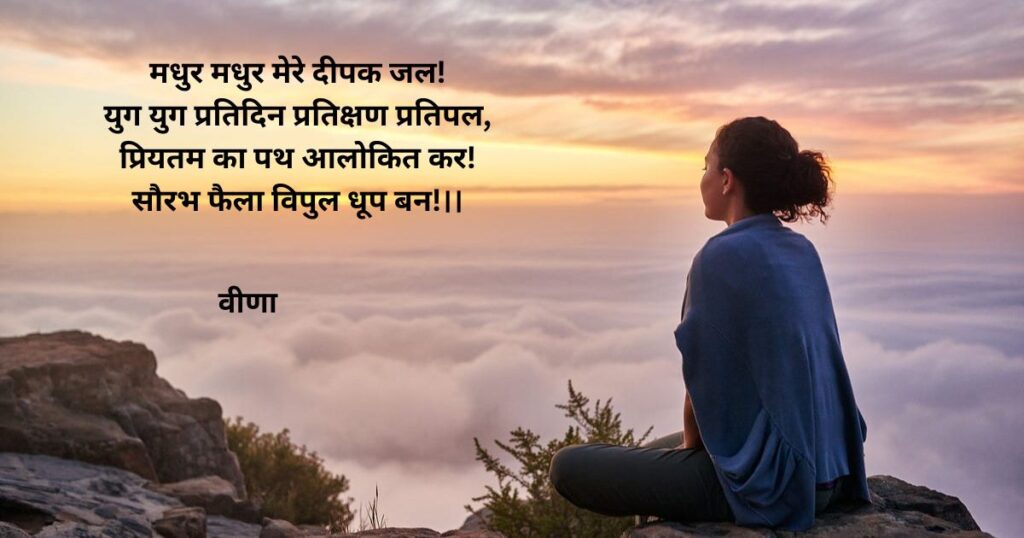
मधुर मधुर मेरे दीपक जल!
युग युग प्रतिदिन प्रतिक्षण प्रतिपल,
प्रियतम का पथ आलोकित कर!
सौरभ फैला विपुल धूप बन!।।
This melodious poem in Hindi by Pant uses the metaphor of a lamp to express devotion and the desire to illuminate the beloved’s path. The verses showcase the poet’s characteristic musicality and his ability to transform simple objects into profound symbols of love and dedication. Pant’s genius lay in creating poetry that was simultaneously accessible and deeply meaningful.
Mahadevi Verma
Mahadevi Verma, the pioneering female voice among famous Hindi poets, brought unique feminine perspectives to modern Hindi literature through her intensely personal and mystical poetry. Her compositions explored themes of love, separation, and spiritual longing with unprecedented emotional depth. Verma’s poems in Hindi challenged patriarchal literary traditions while establishing women’s voices as equally powerful in expressing universal human experiences.
मैं नीर भरी दुःख की बदली (Main Neer Bhari Dukh Ki Badli)
मैं नीर भरी दुःख की बदली!
स्पंदन में निर्झरिणी वेदना,
मेरी दुधी, आँसों से घुली।
मैं छायामय आकाश की छवि,
चुपचाप चले जाने वाली।।
This poignant poem in Hindi by Mahadevi Verma presents the poet as a cloud filled with the water of sorrow, expressing deep emotional pain through nature imagery. The verses demonstrate her mastery in using metaphors to convey complex inner states and her ability to find beauty even in suffering. Verma’s composition reflects the Chhayavadi tradition while bringing distinctly feminine sensibilities to Hindi poetry.
Harivansh Rai Bachchan
Harivansh Rai Bachchan, among the most popular famous Hindi poets, captured the common man’s struggles and aspirations through his accessible yet profound verse. His famous work “Madhushala” revolutionized Hindi poetry by using simple language to convey deep philosophical truths. Bachchan’s poems in Hindi resonated with ordinary readers while maintaining literary excellence, making him beloved across all social strata.
मधुशाला (Madhushala)
मृदु भावनाओं के अंगूरों की,
आज बना लाया हाला,
प्रियतम अपने ही हाथों से,
आज पिलाऊंगा प्याला।।
This opening verse from Bachchan’s masterpiece Madhushala uses the metaphor of wine and tavern to explore life’s experiences and relationships. The poem in Hindi transforms a simple drinking establishment into a profound symbol of life’s joys and sorrows, companionship and solitude. Bachchan’s genius lies in making complex philosophical concepts accessible through familiar imagery that speaks to every reader’s heart.
Ramdhari Singh ‘Dinkar’
Ramdhari Singh ‘Dinkar’, known as Rashtra Kavi (National Poet), stands among the most influential famous Hindi poets for his powerful verses that awakened national consciousness. His epic compositions like “Rashmirathi” challenged social inequalities while celebrating human dignity and courage. Dinkar’s poems in Hindi combined classical grandeur with contemporary relevance, inspiring generations of readers to fight injustice.
रश्मिरथी (Rashmirathi)
जिसके रथ का घर्घर नाद सुना,
वह अर्जुन रथी, वह नर श्रेष्ठ अभिमन्यु से सुत।
श्यामल कृष्ण! आप भी क्या यह उचित समझते?
जो दीन, हीन, क्लीव, मलीन उसे नर कहते।।
This powerful excerpt from Dinkar’s epic poem in Hindi questions social discrimination through Karna’s voice, challenging traditional caste hierarchies. The verses demonstrate the poet’s skill in using mythological characters to address contemporary social issues with devastating effectiveness. Dinkar’s composition remains relevant today as a call for equality and human dignity regardless of birth circumstances.
Subhadra Kumari Chauhan
Subhadra Kumari Chauhan, one of the most celebrated female famous Hindi poets, immortalized the spirit of resistance through her patriotic compositions. Her verses about historical heroes and freedom fighters inspired countless Indians during the independence struggle. Chauhan’s poems in Hindi combined emotional intensity with historical accuracy, creating lasting monuments to India’s brave warriors.
झांसी की रानी (Jhansi Ki Rani)
सिंहासन हिल उठे राजवंशों ने भृकुटी तानी थी,
बूढ़े भारत में भी आई फिर से नयी जवानी थी,
गुमी हुई आज़ादी की कीमत सबने पहचानी थी,
दूर फिरंगी को करने की सबने मन में ठानी थी।।
This stirring poem in Hindi by Subhadra Kumari Chauhan captures the revolutionary fervor that swept India during the 1857 uprising. The verses celebrate Queen Laxmibai’s courage while evoking the broader national awakening against British rule. Chauhan’s composition became an anthem of resistance, inspiring future generations to value freedom and fight against oppression.
More Posts:27+ Famous Poems by Harivansh Rai Bachchan in Hindi
Ayodhya Singh Upadhyay ‘Hariaudh’
Ayodhya Singh Upadhyay ‘Hariaudh’, a pioneering figure among famous Hindi poets, bridged the gap between traditional and modern Hindi literature through his versatile compositions. His works ranged from devotional poetry to social commentary, demonstrating remarkable adaptability to changing literary tastes. Hariaudh’s poems in Hindi showcased technical mastery while remaining deeply rooted in Indian cultural values.
प्रिय प्रवास (Priya Pravas)
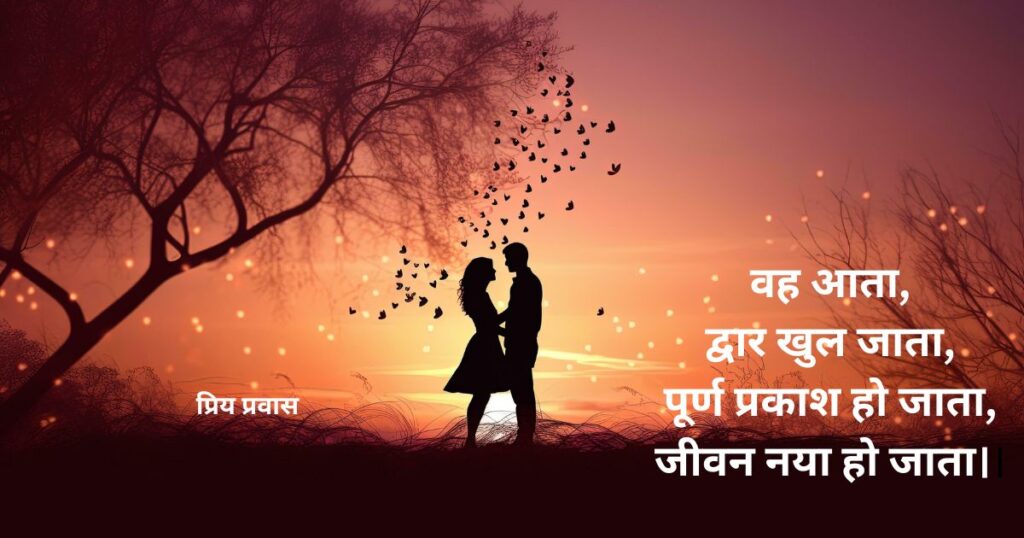
वह आता,
द्वार खुल जाता,
पूर्ण प्रकाश हो जाता,
जीवन नया हो जाता।।
This simple yet profound poem in Hindi by Hariaudh captures the transformative power of the beloved’s presence through minimalist verse. The composition demonstrates how great poetry can achieve maximum impact through carefully chosen words and images. Hariaudh’s mastery lies in creating verses that resonate with readers long after the initial reading.
Sohan Lal Dwivedi
Sohan Lal Dwivedi, a passionate patriot among famous Hindi poets, dedicated his literary career to awakening national consciousness through stirring verses. His compositions about motherland, freedom, and sacrifice became rallying cries during India’s independence movement. Dwivedi’s poems in Hindi combined emotional appeal with moral instruction, making him a beloved voice of resistance.
भारतमाता (Bharatmata)
भारत माता ग्राम वासिनी!
खेतों में फैला है श्यामल,
धूल भरा मैला सा आंचल,
गंगा यमुना में आंसू जल,
मिट्टी की प्रतिमा उदासीनी।।
This emotional poem in Hindi by Dwivedi presents Bharat Mata (Mother India) as a village-dwelling woman whose sari is soiled and who appears sad, symbolizing India’s condition under colonial rule. The verses evoke deep sympathy for the motherland while inspiring readers to work for her liberation and restoration of dignity. Dwivedi’s composition became a powerful tool for nationalist mobilization.
Balkrishna Sharma ‘Navin’
Balkrishna Sharma ‘Navin’, a versatile talent among famous Hindi poets, contributed significantly to Hindi literature through his romantic and patriotic compositions. His poetry reflected the changing sensibilities of early 20th century India while maintaining connections to classical traditions. Navin’s poems in Hindi demonstrated how modern themes could be expressed through refined literary techniques.
क्वार का चांद (Kwar Ka Chand)
चांद की किरणों से नहाकर,
आया क्वार का महीना,
प्रकृति ने पहना है फिर से,
अपना सुनहरा गहना।।
This beautiful poem in Hindi by Navin celebrates the autumn month of Kartik (Kwar) when the moon appears especially bright and beautiful. The verses capture the seasonal transformation of nature through elegant imagery that connects celestial and terrestrial beauty. Navin’s composition demonstrates his ability to find poetry in natural cycles while creating verses that appeal to aesthetic sensibilities.
Nagarjun
Nagarjun, a revolutionary voice among famous Hindi poets, brought Marxist ideology and social consciousness to Hindi literature through his bold compositions. His poetry championed the cause of workers, farmers, and marginalized communities while criticizing social inequality. Nagarjun’s poems in Hindi combined political commitment with artistic excellence, proving that ideologically driven poetry could also be aesthetically superior.
बादल को घिरते देखा है (Badal Ko Ghirte Dekha Hai)
बादल को घिरते देखा है।
तिल तिल पानी बनते देखा है।
मिट्टी सोंधी हवा में देखा है।
पेड़ों के पत्तों को नाचते देखा है।।
This evocative poem in Hindi by Nagarjun uses the gathering of clouds as a metaphor for revolutionary change and social transformation. The verses demonstrate his ability to find political symbolism in natural phenomena while creating beautiful imagery that works on multiple levels. Nagarjun’s composition reflects his belief that poetry should serve both aesthetic and social purposes.
Dharmveer Bharti
Dharmveer Bharti, an innovative voice among famous Hindi poets, revolutionized modern Hindi literature through his experimental compositions and dramatic works. His epic “Andha Yug” reinterpreted the Mahabharata for contemporary audiences, addressing post-war disillusionment and moral crisis. Bharti’s poems in Hindi demonstrated how classical themes could be reimagined to address modern anxieties and existential questions.
अंधा युग (Andha Yug)
युद्ध समाप्त,
किंतु शांति नहीं,
विजय हुई,
पर उल्लास नहीं।।
This profound opening from Bharti’s epic poem in Hindi captures the hollow victory and moral emptiness that follows destructive conflict. The verses reflect the poet’s concern about humanity’s capacity for self-destruction and the need for genuine peace beyond mere absence of war. Bharti’s composition speaks to contemporary readers grappling with similar questions about violence, victory, and moral progress.
More Posts:40+ Enchanting English Poems for Class 1 to 6 Students on Nature
Kedarnath Singh
Kedarnath Singh, a contemporary master among famous Hindi poets, brought fresh perspectives to Hindi literature through his observant and accessible verse. His poetry found extraordinary meaning in ordinary experiences, transforming everyday encounters into profound artistic statements. Singh’s poems in Hindi demonstrated how modern poetry could remain rooted in common experience while achieving remarkable depth.
बाघ (Baagh)
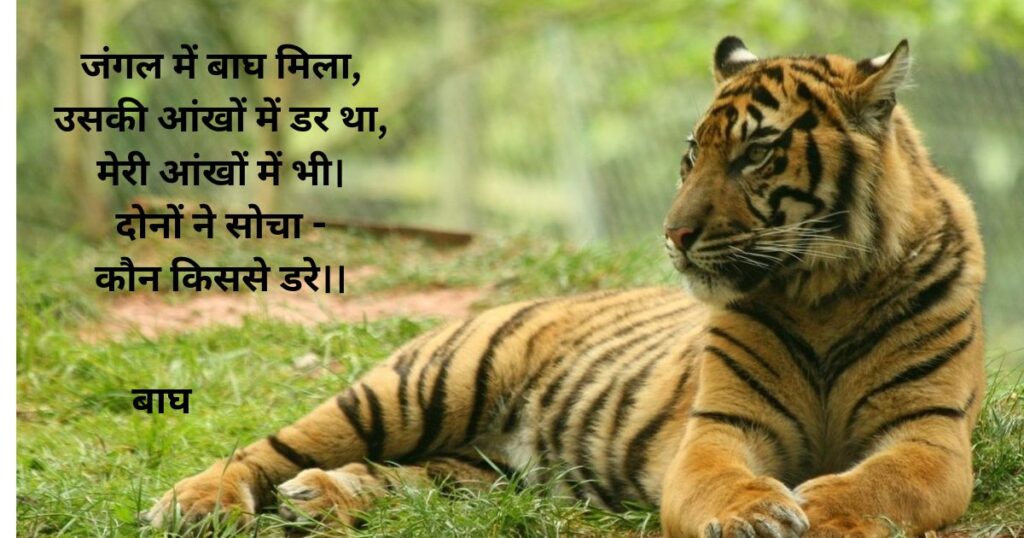
जंगल में बाघ मिला,
उसकी आंखों में डर था,
मेरी आंखों में भी।
दोनों ने सोचा –
कौन किससे डरे।।
This simple yet powerful poem in Hindi by Kedarnath Singh explores the mutual fear between human and tiger, questioning assumptions about who is predator and who is prey. The verses demonstrate how contemporary poetry can address environmental concerns and human-animal relationships through accessible language. Singh’s composition reflects his ability to find profound meaning in chance encounters.
Kunwar Narayan
Kunwar Narayan, one of the most philosophical famous Hindi poets, enriched Hindi literature through his intellectually rigorous and emotionally resonant compositions. His poetry seamlessly blended Western literary influences with Indian cultural insights, creating a unique voice in contemporary Hindi literature. Narayan’s poems in Hindi demonstrated how modern poetry could be both globally aware and locally rooted.
आत्मजयी (Atmjayi)
मैं वजूद हूं,
मैं वजूद हूं,
इसीलिए मैं हूं।
मैं होने के लिए नहीं हूं,
मैं हूं कि होने के लिए हूं।।
This existential poem in Hindi by Kunwar Narayan explores questions of being and existence through philosophical reflection. The verses demonstrate his ability to engage with complex metaphysical questions while maintaining poetic beauty and accessibility. Narayan’s composition reflects his deep engagement with both Indian and Western philosophical traditions.
Gajanan Madhav Muktibodh
Gajanan Madhav Muktibodh, a revolutionary figure among famous Hindi poets, challenged literary conventions through his experimental and politically engaged compositions. His poetry combined surreal imagery with sharp social criticism, creating a unique voice that influenced generations of writers. Muktibodh’s poems in Hindi demonstrated how avant-garde techniques could serve progressive political purposes.
अंधेरे में (Andhere Mein)
अंधेरे में डूबा हुआ एक चेहरा,
जो मेरे सपनों में आता है,
वह मुझसे कहता है –
तुम कहां हो, कहां हो तुम?।।
This haunting poem in Hindi by Muktibodh uses dream imagery to explore themes of alienation and search for identity in modern society. The verses demonstrate his ability to create psychologically complex compositions that work on both personal and social levels. Muktibodh’s work remains influential for its innovative approach to expressing contemporary anxieties through poetic means.
Conclusion
These 20+ famous Hindi poets have created an invaluable literary treasury that continues to inspire, educate, and enchant readers across generations, their poems in Hindi serving as bridges between past and present. Their diverse voices—from medieval mystics to contemporary observers—demonstrate the remarkable range and depth of Hindi poetry, proving its capacity to address universal human concerns through distinctly Indian sensibilities. The enduring popularity of these famous Hindi poets and their poems confirms that great literature transcends time, speaking directly to readers’ hearts while preserving the cultural wisdom of centuries

Admin of https://aspirenowa.com/. Sharing Touching and Thoughtful Poems for all Hearts. I Believe in Simple Words, Deep Meaning, and Inspiring Emotions through Poetry for Every Reader.
